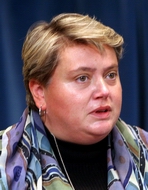- Serbia
Get to know Serbia
- Citizens
Culture and science
Health services
Pension and disability insurance
- Business
Employment
Economy
- Media
- Government
- Contact
Keep in touch
Contact form
Back
Keepin touch
Whether you have a question, comment, suggestion or any problem in the purview of the government, send us your message and we will try to respond as soon as possible. If your problem is not in our purview, we will forward your message to the relevant institution.
Q:
A:
Sweden to finance project on law adoption improvement in Serbia
Belgrade,
20 October 2006
Serbian Minister of economy Predrag Bubalo announced that as part of a project themed "Law Adoption Improvement and Pre-Adoption Analysis of Laws", the government will prepare a regulatory reform strategy.
The project is worth $2.8 million and will be administrated by the World Bank and financed by the Swedish government.
Bubalo told a press conference that part of the funds will be used for building capacities of the regulatory reform council and the analysis of implemented laws.
The regulatory reform council will primarily coordinate the drafting of an analysis of effects of laws, which should point out the issues that are solved through laws, the reasons why a solution is thought the best and the anticipated costs and usefulness of laws.
This could lead to a better quality law drafting process in Serbia and for the first time the expected effects of a law will have to be clearly defined, analysed and presented beforehand to the government, parliament and the broader public.
The pre-adoption law analysis process would enable an imrpoved quality law drafting process since it would increase transparency, efficiency, legal safety and predictability of law regulations.
Bubalo explained that the aim is to clear out all superfluous regulations that Serbia inherited from previous states to which it once belonged.
According to Bubalo, each ministry will have to draft a list of laws covering their area of competence and explain whether they should or should not be applied.
Bubalo told a press conference that part of the funds will be used for building capacities of the regulatory reform council and the analysis of implemented laws.
The regulatory reform council will primarily coordinate the drafting of an analysis of effects of laws, which should point out the issues that are solved through laws, the reasons why a solution is thought the best and the anticipated costs and usefulness of laws.
This could lead to a better quality law drafting process in Serbia and for the first time the expected effects of a law will have to be clearly defined, analysed and presented beforehand to the government, parliament and the broader public.
The pre-adoption law analysis process would enable an imrpoved quality law drafting process since it would increase transparency, efficiency, legal safety and predictability of law regulations.
Bubalo explained that the aim is to clear out all superfluous regulations that Serbia inherited from previous states to which it once belonged.
According to Bubalo, each ministry will have to draft a list of laws covering their area of competence and explain whether they should or should not be applied.
Swedish Ambassador to Belgrade Lars-Goran Engfeldt said that 30 years ago Sweden carried out such a reform, thus bringing about progress in the business sector.
World Bank Country Manager in Serbia-Montenegro Carolyn Jungr said that in the past two years, Serbia made huge progress in improving its business atmosphere, primarily by implementing the Law on the registration of business subjects; however, there is still a need to work on some other areas.
Jungr stated that implementation of contracts should be more efficient, which means court proceedings must take longer than a year, adding that slow licensing and permit issuing are another obstacle to the improvement of Serbian entrepreneurship.
World Bank Country Manager in Serbia-Montenegro Carolyn Jungr said that in the past two years, Serbia made huge progress in improving its business atmosphere, primarily by implementing the Law on the registration of business subjects; however, there is still a need to work on some other areas.
Jungr stated that implementation of contracts should be more efficient, which means court proceedings must take longer than a year, adding that slow licensing and permit issuing are another obstacle to the improvement of Serbian entrepreneurship.
-
 Belgrade, 22 January 2025
Belgrade, 22 January 2025Egypt one of Serbia’s closest partners on international stage
-
 Belgrade, 9 July 2024
Belgrade, 9 July 2024Support for 104 associations in diaspora that preserve Serbian language, culture
-
 Belgrade, 15 April 2024
Belgrade, 15 April 2024Competition for StarTech grants open until 31 May
-
 Belgrade, 2 October 2023
Belgrade, 2 October 2023Serbia respects Resolution 1244 and will do everything to preserve peace
-
 Belgrade, 13 September 2023
Belgrade, 13 September 2023Day of Serbian Unity to be celebrated outside borders of Serbia, Republika Srpska for the first time
-
 Belgrade, 8 August 2023
Belgrade, 8 August 2023RSD 24.2m in state aid paid out to citizens affected by storm
-
 Belgrade, 17 June 2023
Belgrade, 17 June 2023Belgrade is doing everything to preserve peace in Kosovo and Metohija
-
 Belgrade, 15 June 2023
Belgrade, 15 June 2023Slovenia will continue to support Serbia on its way to EU
-
 Belgrade, 5 May 2023
Belgrade, 5 May 2023Emergency measures, tightening of conditions for possessing weapons
-
 Belgrade, 3 May 2023
Belgrade, 3 May 2023Three days of mourning in Serbia over tragedy at Vladislav Ribnikar primary school

